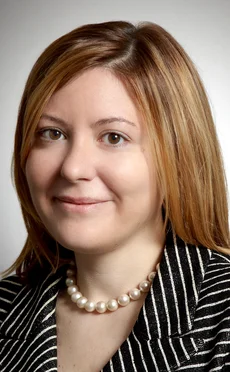
This article was paid for by a contributing third party.More Information.

Structured Products Washington: 2017 conference overview

Recent months have seen some interesting shifts in the structured products market as firms try to adapt to the new normal amid an ebbing and flowing industry. Gathering senior structured products professionals from across North America, Risk.net’s fifth annual Structured Products Washington conference this year showcased the latest developments in the legal, regulatory and compliance landscape for structured products. Conference sponsor Morrison & Foerster reviews the highlights of the event

The conference kicked off with a keynote address from Peter Driscoll, director of the Office of Compliance Inspections and Examinations (OCIE) of the US Securities and Exchange Commission (SEC), in which he set the tone for the day’s sessions by noting that, although there had been significant improvements in disclosures relating to structured products offerings, it was important to remain vigilant and to continue to focus on avoiding potential mis-selling of complex financial products to retail investors. Driscoll provided conference attendees with an overview of OCIE’s approach to examining firms, discussing the strategic examination selection process based on firm risk profiles and national exam priorities. Sales of complex products to retail investors and those made to at-risk investors, including senior investors, remain priorities. Driscoll noted that the SEC’s big data analytics capabilities now allow OCIE and other divisions of the SEC to request larger datasets from firms that are the subject of an exam, and to conduct reviews that span longer periods and which may detect trading patterns that raise concerns, including churning, reverse churning and unsuitable recommendations. He noted that retail structured products have been included as an exam priority for three out of the past five years, principally because of concerns regarding complexity, lack of price transparency, limited liquidity and the use of leverage. Driscoll also noted, among the most significant exam findings related to structured products, a frequent lack of understanding of the product features on the part of registered representatives recommending such products. He also reported that training should remain a high priority.
Legal panel

Peter Driscoll’s speech was followed by the first panel discussion of the day, moderated by Lloyd Harmetz of Morrison & Foerster. Panellists discussed regulatory developments and the regulatory environment since the 2016 US presidential and congressional elections, and the impact of these elections and the new administration on innovation and offering activity in the structured products market. Panellists also considered the impact on the structured products market of a variety of recent regulatory developments and initiatives, including the potential discontinuation of Libor, the new T+2 settlement rules and how these apply to primary offerings and sales in the secondary market, the Financial Industry Regulatory Authority’s (Finra’s) new mark-up disclosure rules and how they may impact both retail and institutional sales, and new European regulations and their impact on international issuers. Panellists also exchanged views on the new finance subsidiaries that have been established in order for bank holding companies that are global systemically important banks to continue to issue structured products while complying with the new US total loss-absorbing capacity (TLAC) rules, and how these have been used in connection with different types of structured note offerings.
Compliance medley
Morrison & Foerster’s Anna Pinedo and Lloyd Harmetz discussed the details of a variety of current SEC and Finra issues. These included the Finra mark-up disclosure rules and how they apply in a variety of offering scenarios, Finra’s new rules relating to senior and other vulnerable investors, issuer blackout periods and control room (‘restricted list’) issues, and their related impact on the structured products market. The panellists discussed the many policies and procedures maintained by market participants, and how their provisions and usage impacted offerings in this area. The panel also analysed the nature of regulatory scrutiny that could be applied in the future, particularly in scenarios where an issuer’s written policies differ from its actual practices.
Fiduciary rule
Morrison & Foerster’s Hillel Cohn led a discussion regarding the current status of the US Department of Labor’s fiduciary rule – the DOL rule. He provided some background for attendees regarding the current status of the DOL rule, which has gone into effect but is subject to a transition period during which certain documentation requirements are not yet effective. The DOL rule has been the subject of intense debate within the industry, as well as the subject of various litigation challenges. While many hoped that the DOL rule would be rescinded by the new administration, it was allowed to become effective and most broker-dealers have implemented measures to comply with the transition rules. Nonetheless, given requests for comment from the Department of Labor on the DOL rule, as well as expected rulemaking by the SEC regarding a heightened standard of care, which may include a fiduciary standard for broker-dealers, considerable uncertainty remains regarding the future of the rule. Brad Busscher, general counsel of Incapital and one of the panel members, provided some insight into the ways in which distributors, such as Incapital, have restructured their offerings to provide broker-dealers with a variety of issuance options, including options appropriate for fee-based accounts. In response to a poll question, many attendees declared that their firms were moving towards fee-based (as opposed to commission-based) models for their structured products offerings.
Market trends and innovations
Several panels hosted during the event featured speakers who discussed market trends in the US structured products market, including issuance levels. Representatives from various broker-dealer affiliates of frequent structured product issuers noted that volumes had remained relatively consistent in recent years, with healthy volumes to date in 2017. Also addressed were issuance channels, including SEC-registered notes offerings, offerings of certificates of deposit and offerings of banknotes in reliance on the Section 3(a)(2) exemption.
In 2017, through to September 15, there have been $35 billion of SEC-registered notes, compared with $38.7 billion in all of 2016. Average deal size in 2017, through September 15, has been $3.77 million, with a weighted-average maturity of 3.3 years. The panellists noted there had been little to modest impact on the market as a result of the TLAC requirement and the establishment of a finance company or other subsidiaries to issue structured products. Participants also stated that the DOL rule had impacted negatively the market for structured notes.
Also discussed was the potential impact of real-time pricing services, which could result in significant efficiencies, as well as the impact of the development of structured note issuance platforms that combined pricing services and request-for-quote functionalities with educational content. Keith Styrcula, head of the US Structured Products Association, led a dialogue with Biju Kulathakal of Halo Investing regarding Halo’s innovative business model and its approach to engaging the registered investment adviser channel in offerings of structured products. Earlier in the day, Steve Houston from Alaia Capital provided attendees with an overview of another innovation – structured unit investment trusts. These provide similar payoff profiles to structured notes, but are subject to a different regulatory framework since these products are issued by funds subject to registration under the US Investment Company Act of 1940.
Other regulatory matters
In a panel that included Darren Littlejohn and Vladimir Shatiryan from Blake, Cassels & Graydon (Blakes), Morrison & Foerster partner Jeremy Jennings-Mares led a discussion into European and Canadian regulatory developments affecting structured product issuance. Jennings-Mares highlighted changes resulting from the Packaged Retail and Insurance-based Investment Products (Priips) regulation, including the requirements applicable to the key information documents for such products, as well as the potential extraterritorial application of the Markets in Financial Instruments Directive to US participants. Representatives from Blakes provided an overview of the new bail-in and resolution framework that will be applicable to Canadian banks that are domestically systemically important and the effect of the bail-in regime on structured products. They also addressed the proposed Canadian TLAC requirements.
Salman Banaei of IHS Markit talked about European regulation of benchmarks and its impact on structured products, referencing even certain proprietary indexes. Morrison & Foerster partner Remmelt Reigersman, joined by representatives from two leading banks, spoke about the potential for significant tax reform in the US, and also addressed other tax developments affecting the structured products market, including compliance with Section 871(m) of the Internal Revenue Code in respect of certain product offerings.
Finra and OCIE priorities and examinations
The final panel of the day covered Finra examinations, suitability, new product approval and know-your-distributor (KYD) policies. Daniel Nathan, a partner at Morvillo, opened the panel with a summary of several types of Finra examinations, and advice on how to work with the Finra examiners to achieve the best results. He highlighted the importance of firms keeping up with Finra recommendations and notices, as Finra tends to forecast areas of concern. Member firms should be careful to address those areas before undergoing an exam.
Brad Berman, of counsel at Morrison & Foerster, examined Finra Rule 2111 on suitability, and discussed in detail how firms should conduct due diligence on any product being sold, undergo the new product approval process, conduct a post-approval review of product performance and carefully document the whole process.
Recent Finra and SEC enforcement actions were discussed, with an emphasis on the failure of some firms to make an appropriate suitability assessment, to supervise personnel involved in the sales of structured products or to adequately train their sales representatives. One firm had written supervisory procedures (WSPs) for a particular type of structured product, but did not have supervisory systems in place to ensure that the WSPs were followed, resulting in unsuitable recommendations. A recurring theme in these cases was a lack of understanding by sales personnel of the products being recommended, sometimes due to inadequate training.
The final area covered by this panel was a discussion of how dealers conduct a KYD process as a matter of fundamental diligence in the distribution of structured products. The emphasis was on preventing mis-selling of structured products and related reputational harm (and possible litigation) by carefully vetting dealers in the distribution chain. The guidance provided in the 2013 Finra conflicts of interest report was discussed, including background checks, interviews, on-site visits and annual reviews of distributor performance. The use of tiers of distributors – effectively, using distributors with expertise in certain types of products only to sell those products – was recommended.
Sponsored content
Copyright Infopro Digital Limited. All rights reserved.
As outlined in our terms and conditions, https://www.infopro-digital.com/terms-and-conditions/subscriptions/ (point 2.4), printing is limited to a single copy.
If you would like to purchase additional rights please email info@risk.net
Copyright Infopro Digital Limited. All rights reserved.
You may share this content using our article tools. As outlined in our terms and conditions, https://www.infopro-digital.com/terms-and-conditions/subscriptions/ (clause 2.4), an Authorised User may only make one copy of the materials for their own personal use. You must also comply with the restrictions in clause 2.5.
If you would like to purchase additional rights please email info@risk.net